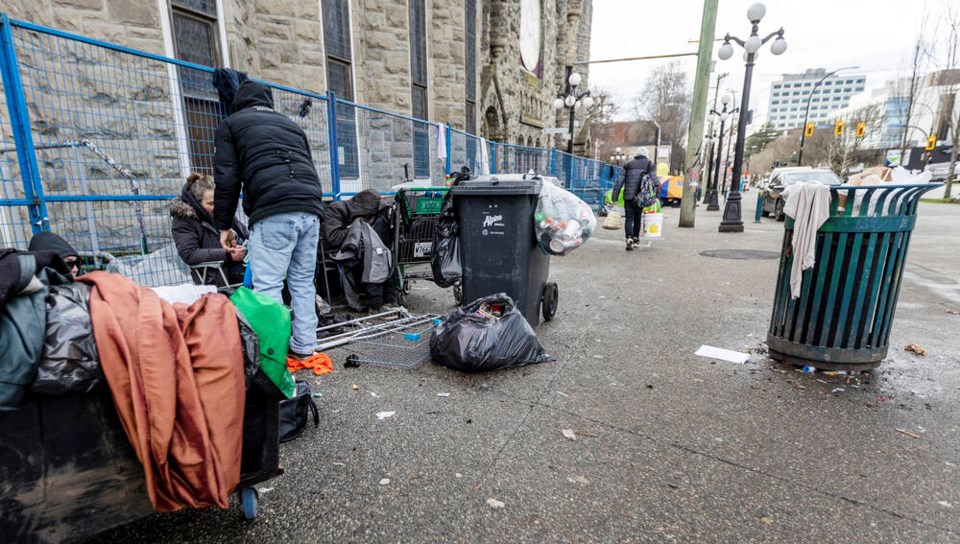A commentary by the CEOs of Our Place Society and the Victoria Conservatory of Music.
It’s time for a call to action.
Barely a day goes by when we aren’t asked about Pandora Avenue, what’s happening there, why it’s happening, and what can be done about it.
Some ask from a place of frustration, others from anger, fear or distress at seeing their fellow human beings in crisis — even dying on our streets.
It doesn’t matter what the motivation is — what everyone wants, without exception, is something done. As representatives of a community of social service providers, teachers and artists, we share that sentiment.
Each day at work, we witness people’s lives falling apart, disintegrating before our eyes, and their desperate needs unattended.
Our Place is often blamed as being the cause of what is happening on our streets, and the Conservatory of Music — western Canada’s largest music school — seen as a bystander. But it is equally frustrating and heartbreaking for our organizations to witness, each day, a situation we are powerless to remedy.
We simply do not have the resources or capacity to meet the unmet housing and health needs that have driven people onto our streets.
But based on our collective and long experience, Our Place and the Conservatory believe the situation on Pandora Avenue and other streets in Victoria has a solution. It is not hopeless.
We propose a four-point plan, to be executed in the following order:
1. Conduct an intensive outreach program with those on the street to build a relationship and understand how they ended up there, and what it would take to get them off the street, especially understanding their health, housing and sheltering needs.
2. Provide and place people in a range of housing and sheltering options, including emergency low-barrier shelters, long-term shelters, complex-care housing, transitional housing, and permanent supportive and independent housing. Remove the street and parks as being the normalized, sanctioned, and viable housing option it has become.
3. Support people to access a range of physical, mental illness, and addictions services and interventions, including trauma-informed counselling, institutional mental-health care, complex care, primary care, transitional treatment, detox, treatment, and recovery; and move beyond harm reduction as being the sole response to people’s addiction and health needs. In extreme situations, this care needs to be involuntary.
4. Support the police and judicial system to incarcerate the small number of “bad operators” on the street — those who are dangerous, and extremely physically and sexually violent, and those who traffic unhoused people, mainly women — and repeat offenders. This is not criminalizing homelessness or poverty but recognizing that unhoused people are disproportionately the victims of crime and deserve the same protection as housed citizens.
As the two organizations most adversely affected by what is happening on Pandora, we call on a leader from government — which has the power, resources, and capacity to drive the needed change — to come forward, bring the key players together, provide us with the necessary resources and support, and give us a deadline to make this plan happen.
A leader who, while supporting us, won’t accept endless reasons not to act, but help us cut through the barriers to action and get it done.
This is not an exercise in finger-pointing or blame, but an attempt at a possible solution and a call to action.
This situation is manageable. Where there is a will, there really is a way. Three years ago, we decamped roughly 500 out of our parks — which some said was not possible — by taking this approach.
Guided by our shared compassion, we can do it again. We must do it, for every citizen’s sake.
>>> To comment on this article, write a letter to the editor: [email protected]



